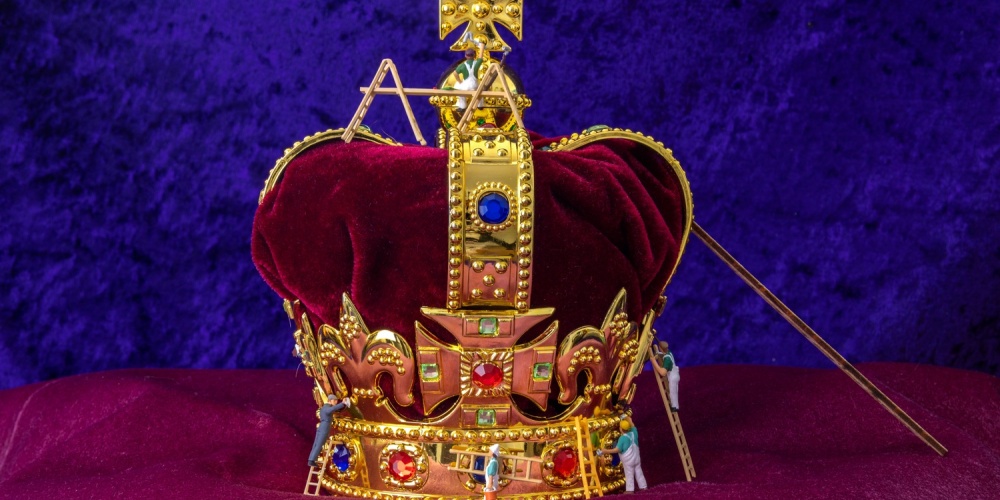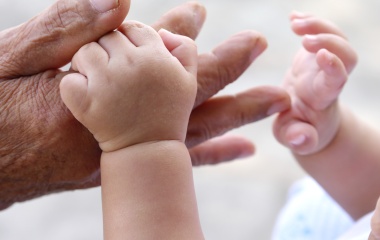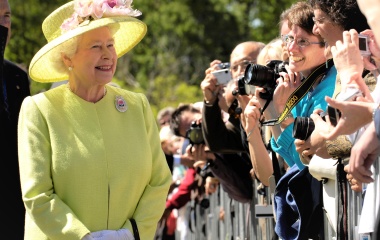
Pomp and ceremony are very Jewish ideas. While this may come as a surprise to many, the Torah understood that pageantry has a great impact on people. The Temple was to be the most beautiful structure, constructed with the finest of materials. Those who worked in the Temple had to dress for the occasion. The Torah is most insistent that the kohen gadol be adorned in the finest of clothes: “breastpiece, an ephod, a robe, a fringed tunic, a headdress, and a sash… [made of] gold, the blue, purple, and crimson yarns, and the fine linen” (Shmot 28:4- 5). Failure to wear these clothes during the Temple service was an offence so serious that it warranted death at the hands of heaven (Rambam, Hilchot Kelei Mikdash 8:10).
Our shuls – miniature temples that they are – are meant to be beautifully ornate[1]. They are to be the tallest building in the city – something that through the exile was generally not possible – making it the centre of town. The many rituals of religious life bestow our daily life with meaning and attest to the importance of the task ahead. If many a baseball player has a ritual before he approaches homeplate, how much more are rituals needed before we approach the Holy One Blessed be He.
Even parades are part and parcel of our tradition. “An ox would go in front of them, his horns bedecked with gold and with an olive-crown on its head. The flute would play before them until they would draw close to Jerusalem. When they drew close to Jerusalem, they would send messengers in advance, and they would adorn their bikkurim. The governors and chiefs and treasurers [of the Temple] would go out to greet them, and according to the rank of the entrants they would go forth. All the skilled artisans of Jerusalem would stand up before them and greet them saying, ‘Our brothers, men of such and such a place, we welcome you in peace’ (Mishna Bikkurim 3:3).
Such is the description of the bringing of the Bikkurim, the first fruit, to the Temple, thanking G-d for the blessings of the Land. This, the Mishna continues, was a royal parade: “The flute would play before them, until they reached the Temple Mount. When they reached the Temple Mount even King Agrippas would take the basket and place it on his shoulder and walk as far as the Temple Court.”
I was thinking of the above in reading about the preparations for the coronation of King Charles lll this shabbat. It has been 70 years – almost to the day – since the last coronation of a British monarch. There are few alive today who have a living memory of the Elizabeth’s coronation, one attended by four-year-old prince Charles.
Charles ascended to the throne upon the death of his mother, Queen Elizabeth (you can read my thoughts about her passing here). The parsha read on her “last shabbat” was that of Shoftim which details the laws of appointing a monarch. King Charles lll is being coronated as we read parshat Emor, which details the laws relating to the kohanim in general and the kohen gadol in particular.
It is the king and the kohen gadol who are the regal leaders of the Jewish people. The anointing of King Charles with oil is rooted in the Biblical text we will read this shabbat, instructing the kohen gadol is to be anointed with oil, a practice followed by Biblical kings and now the British monarchy.
Seeing a king is no small matter. “One who sees kings of Israel recites: Blessed are Thou…Who has shared of His glory with those who revere Him. One who sees kings of the nations of the world recites: Blessed are Thou…Who has given of His glory to flesh and blood (Brachot 58a).
The Gemara continues with the teaching of Rabbi Yochanan that “One should always strive to run toward kings of Israel [to greet them]. And not only toward kings of Israel, but also toward kings of the nations of the world, so that if he will be privileged, he will distinguish between the kings of Israel and the kings of the nations of the world”. In a rather fascinating comment, Rashi explains that if one will merit the World to Come and see the Melech HaMasiach, the Messianic king, he will witness the great reward for doing mitzvot, a reward greater than any honour given to the nations in this world.
Shabbat is mein olam haba, a taste of the world to come. This shabbat we will have an even greater taste. Reading about the warmth of the King and the Chief Rabbi is, in my mind, a beautiful kiddush Hashem, sanctification of G-d’s name, a mitzva that, not coincidentally, we will read about this shabbat. The difference between this king and so many before him is beyond words. That the King is hosting the Chief Rabbi and his wife – and the President of the State of Israel – in a royal residence so that they can walk to the coronation is so moving. As the king receives blessings from a diverse group of religious leaders - what a beautiful concept – there will be no microphones present. Valerie Mirvis is even preparing a homemade cake for the Royals. If one does not find this amazing, it is due to how blessed are we today to live in free and open societies[2] – and some ignorance of Jewish history[3].
So important is showing respect to the King that the London Beit Din has ruled that the Chief Rabbi may attend the Church service at Westminster Abbey.
70 years are a lifetime - “the years of one’s life are [but] 70” (Tehilim 90:10). Yet almost paradoxically, 70 in Judaism represents a nation. It took only 70 people who sojourned to Egypt to form the nation of Israel. 70 elders were chosen to represent the nation, the number of whom later served members of the Sanhedrin, the legislative and judicial body of the Jewish people. The Babylonian exile was to be for 70 years. And with the nation of Israel, a nation of the Torah, it is not surprising that our Sages assert that there are “70 faces to the Torah”.
But it is not only the Jewish nation that is represented by the number 70. The Torah lists 70 descendants of Noach – the father of all nations – and hence our rabbis declare that the world consists of 70 nations. That the Jewish people are part of the word of nations is further indicated by the 70 bulls brought as a sacrifice on Sukkot, with the 70 bulls representing the 70 nations of the world. It is when Jews and non-Jews join together in peace – each according to their own traditions – that we will merit the Sukkah of peace being spread upon us.
May we soon merit the day when “nation shall not lift up sword against nation” and that the Lord shall be King upon the whole earth.
[1] This is something that Conservative and Reform Synagogues are quite meticulous about but something that many Orthodox shuls ignore.
[2] It is for good reason that Rav Moshe Feinstein often referred to the United States of America as a Malchut shel Chesed, a kingdom of kindness.
[3] No Chief Rabbis were invited to the 16 coronations between 1290 and 1655. And that has little to do with the fact that the first Chief Rabbi of the United Kingdom, Rabbi Aaron Hart was appointed in 1704, but much to do with the fact that no Jews were allowed in England during those years.



